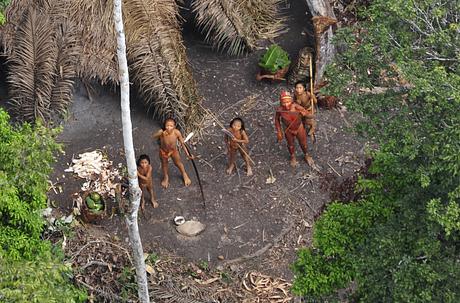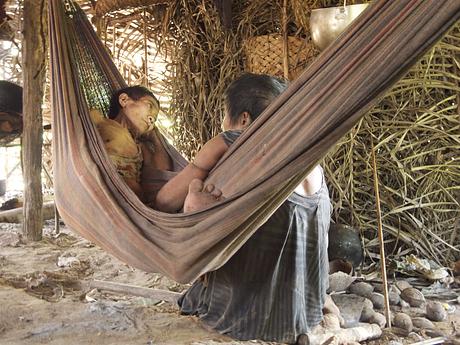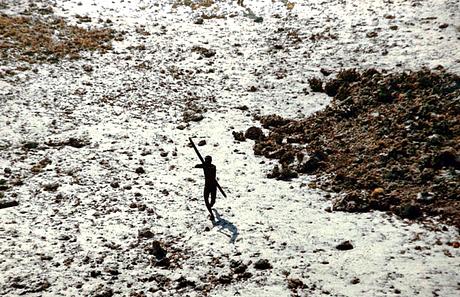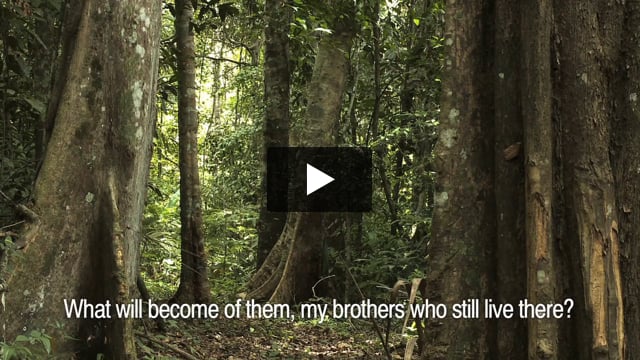Survival International attacks Science editorial as 'dangerous and misleading'
June 4, 2015
 © G. Miranda/FUNAI/Survival
© G. Miranda/FUNAI/SurvivalAn editorial in Science magazine which calls for isolated tribes to be contacted for their own benefit has been slated as “dangerous and misleading” by Survival International, the global movement for tribal peoples’ rights.
The authors, Professors Robert S. Walker and Kim R. Hill, maintain that “a well-designed contact can be quite safe,” but the examples of contact they choose to illustrate their point were in fact catastrophic, and left many of the tribespeople dead.
The idea that contact with such tribes will end happily as long as there are adequate safeguards is dangerously naive. Brazil has more expertise in this area than any other country, yet right now two recently contacted Awá women are critically ill with tuberculosis because they were left for months without proper healthcare after contact occurred.

Walker and Hill have also decided that isolated populations are "not viable in the long term.” At the same time, they acknowledge that there are about 50 such peoples in South America (in fact, there are more). Quite how these peoples aren’t “viable” isn’t explained, as many of them appear to be thriving.
The anthropologists’ statement would certainly come as news to perhaps the most isolated tribe in the world, the Sentinelese of the Indian Ocean, who have lived on their island for at least 15,000 years, and are visibly both “viable” and healthy.
 © Indian Coastguard/Survival
© Indian Coastguard/Survival
Survival’s Director Stephen Corry said today, “Walker and Hill play straight into the hands of those who want to open Amazonia up for resource extraction and ‘investment.’ That they claim this is for tribes’ own benefit is dangerous and misleading nonsense.
“Perhaps their most offensive justification for forcibly contacting isolated tribes is that ‘surviving Indigenous populations rebound quickly from population crashes.’ The casual tone with which the authors dismiss the deaths of scores of men, women and children is deeply disturbing.
“Let there be no doubt: isolated tribes are perfectly viable, as long as their lands are protected. To think we have the right to invade their territories and make contact with them, whether they want it or not, with all the likely consequences, is pernicious and arrogant. The decision as to whether to make contact or not has to be one for the people themselves, not for outsiders who think they know what’s in the Indians’ best interests.”
A Guajajara Indian man fighting to protect the territory of his neighbors the Awá said: “It is simple: the uncontacted Awá need their forest. This is their home and nobody has the right to take it away from them, or to remove them from it. Without their land, our uncontacted relatives will not survive.”
And Wamaxua, a recently contacted Awá man, told Survival: “When I lived in the forest, I had a good life. Now, if I meet one of the uncontacted Awá in the forest, I’ll say: ‘Don’t leave! Stay in the forest… There’s nothing in the outside for you.’”
Notes to editors:
- Watch videos and read more about uncontacted tribes on Survival’s dedicated website www.uncontactedtribes.org




